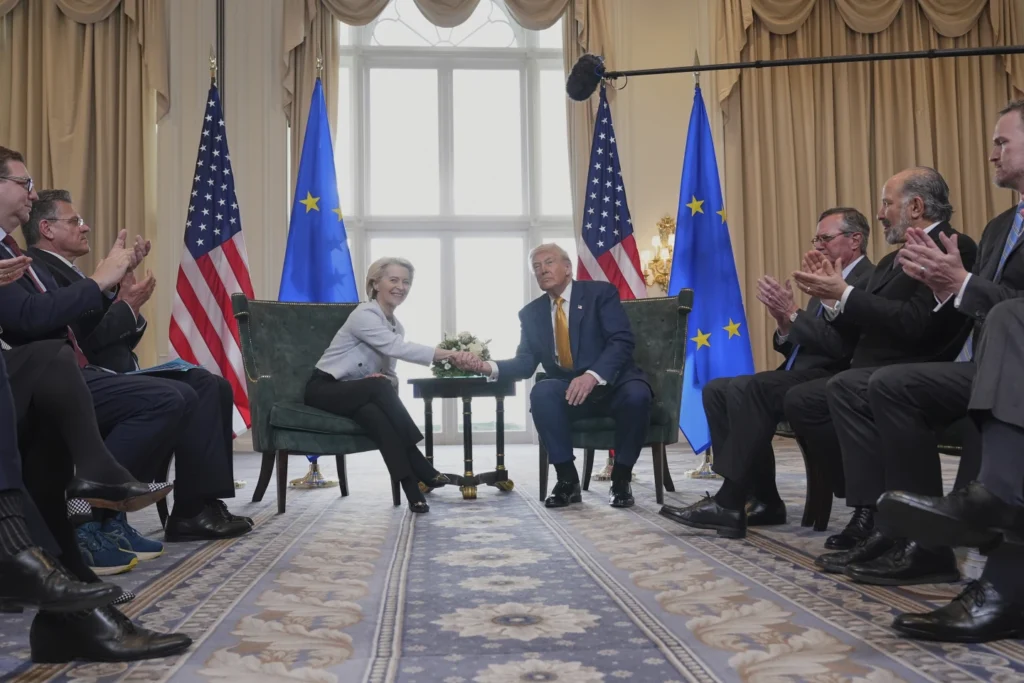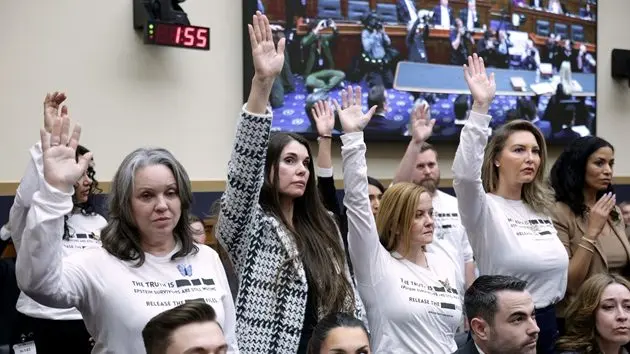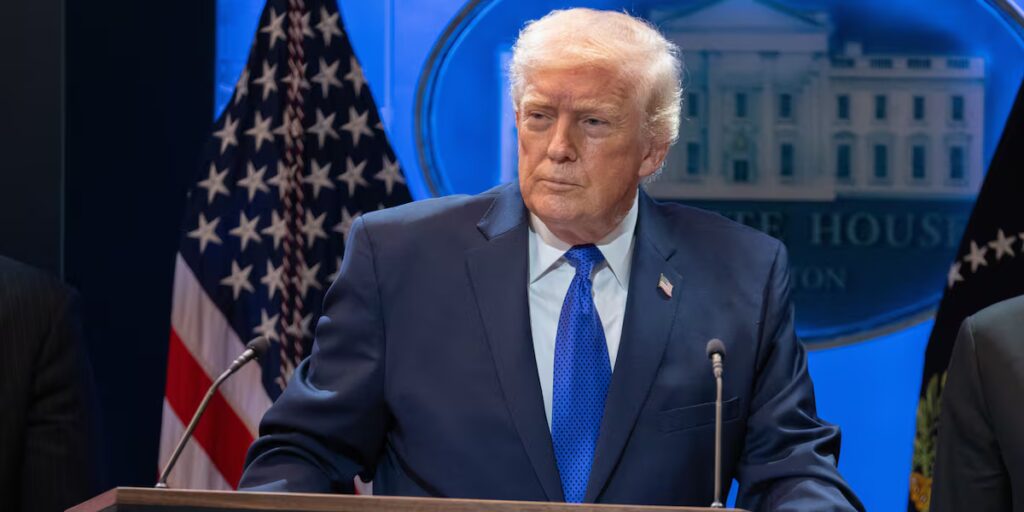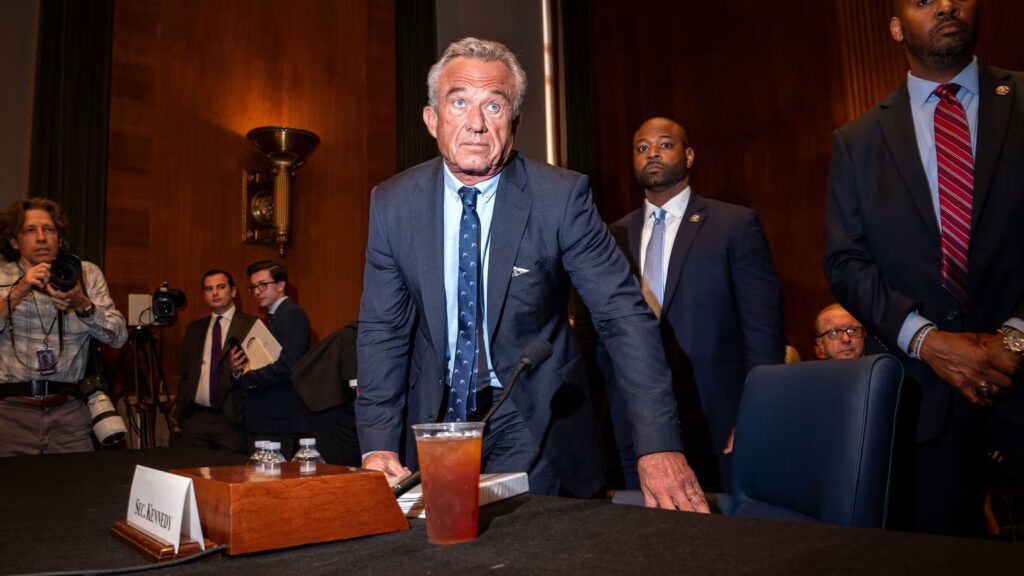Europe Accepts US Tariffs to Secure Defense, Aid Ukraine

Europe Accepts Higher US Tariffs to Secure Defense and Support Ukraine
The European Union has agreed to raise tariffs on most exports to the U.S. to 15%, up from the current 5%, in a move analysts say underscores the bloc’s dependency on Washington—not just for trade, but for defense and stability amid the war in Ukraine.
A Political Trade-Off for Security
France’s prime minister called it a “dark day” for Europe, while critics described the agreement as a diplomatic capitulation to President Donald Trump. However, the EU’s top officials insisted the deal was not just about trade. According to EU Trade Commissioner Maroš Šefčovič, the talks focused heavily on security, Ukraine, and geopolitical instability.
“It’s not only about the trade,” Šefčovič emphasized. “It’s about security.”
Trump and EU Commission President Ursula von der Leyen finalized the agreement during a brief meeting following Trump’s golf round in Scotland.
Why Europe Accepted Higher Tariffs
While the increase to 15% US tariffs on European goods may strain the EU economy, leaders determined it was a manageable price to maintain U.S. security commitments. Trump has hinted at scaling back U.S. troop presence in Europe, which currently totals about 84,000 personnel.
“Europe is going to pay in a BIG way,” said Dutch PM Mark Rutte in a text to Trump—one that Trump promptly shared on social media.
The deal also includes expanded purchases of U.S. oil, gas, and nuclear fuels, helping Europe reduce dependence on Russian energy. Von der Leyen noted that the shift “will contribute to Europe’s energy security.”
NATO, Ukraine, and the Cost of Deterrence
With Russia’s invasion of Ukraine entering its fourth year, European leaders fear further aggression. NATO allies agreed last month to invest hundreds of billions of euros into defense over the next decade, not only to deter Russia but also to keep America committed to the alliance.
At the same time, Trump’s use of Section 232 of the Trade Expansion Act—intended to justify tariffs on national security grounds—has left European nations walking a diplomatic tightrope.
“Ukraine is a big part of this,” said Niclas Poitiers, economist at Bruegel. “But our defense in general is underwritten by NATO, and that means the U.S.”
Energy, Arms, and Uneasy Diplomacy
The EU’s commitment to buy more American energy is another pillar of the agreement. Von der Leyen said this would help the bloc eliminate the last traces of reliance on Russian oil and gas.
However, her quiet demeanor in the meeting with Trump drew criticism. She did not push back when Trump incorrectly claimed the U.S. is the sole provider of aid to Gaza—despite the EU being the largest donor to the Palestinians.
Still, many in Europe see the decision as pragmatic, not submissive. Trump had threatened 30% tariffs if a deal wasn’t reached. By comparison, 15% was viewed as a necessary compromise.
What Comes Next?
While the economic impact is real, experts like Poitiers say it’s not catastrophic:
“This is a negative shock for our economy, but it is something very manageable.”
What remains unclear is how long this fragile transatlantic entente will hold. With global priorities shifting and U.S. leadership in flux, Europe may soon face the harder task of redefining its autonomy—both economically and militarily.
Source: AP News
: 279







